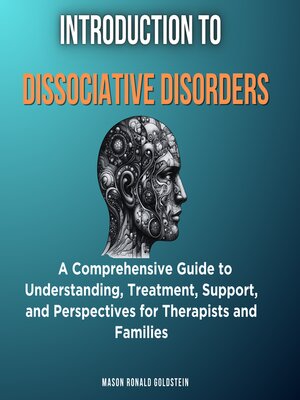Introduction to Dissociative Disorders
audiobook (Unabridged) ∣ A Comprehensive Guide to Understanding, Treatment, Support, and Perspectives for Therapists and Families
By Mason Ronald Goldstein

Sign up to save your library
With an OverDrive account, you can save your favorite libraries for at-a-glance information about availability. Find out more about OverDrive accounts.
Find this title in Libby, the library reading app by OverDrive.



Search for a digital library with this title
Title found at these libraries:
| Library Name | Distance |
|---|---|
| Loading... |
This audiobook is narrated by a digital voice.
Introduction to Dissociative Disorders: A Comprehensive Guide to Understanding, Treatment, Support, and Perspectives for Therapists and Families is an essential resource designed to deepen the understanding of dissociative disorders for mental health professionals, family members, and those affected by these conditions. Dissociative disorders, which often result from trauma, are among the most complex and misunderstood mental health conditions. This guide provides readers with accessible insights, practical tools, and compassionate approaches to effectively support individuals living with these challenges.
A Clear Overview of Dissociative Disorders: Understand the full spectrum of dissociative conditions, including Dissociative Identity Disorder (DID), Dissociative Amnesia, and Depersonalization/Derealization Disorder, with detailed explanations of symptoms, causes, and diagnostic criteria.
Trauma-Informed Care Principles: Learn how trauma affects dissociation and why trauma-informed care is crucial for creating a safe and supportive environment in therapy and at home.
Therapeutic Approaches and Tools: Explore evidence-based treatments, including Cognitive Behavioral Therapy (CBT), Dialectical Behavior Therapy (DBT), Eye Movement Desensitization and Reprocessing (EMDR), and mindfulness-based therapies. Discover practical tools, grounding exercises, and dissociation management techniques that therapists and families can use to support healing.
Building Trust and Effective Communication: Find strategies to establish trust with clients who experience dissociation, communicate effectively with those who may struggle to express their experiences, and set healthy boundaries in a therapeutic context.







